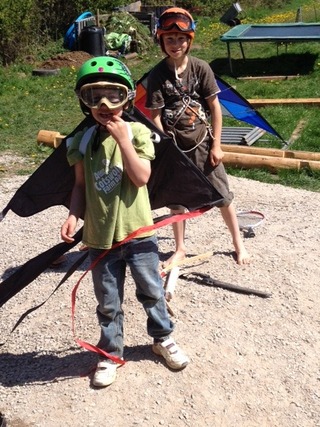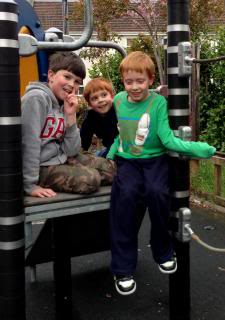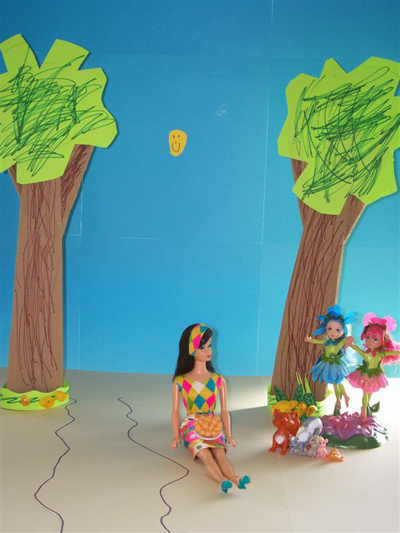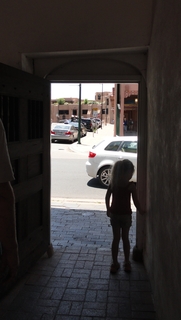
Jenny Cyphers wrote:
I really can't imagine villifying anything in their lives that they might find very exciting. Well, I can imagine it, so I guess that's why I don't do it.
photo by Susanna Waters
___





Homeschooled kids get the opportunity to form friendships with people of all ages based on interests rather than birthyears. There's homeschooling support groups, scouts, art and dance and martial arts classes, 4H, church groups, neighborhood kids and so on. It can be more difficult depending on the town's services and the parent's willingness to take advantage of opportunities, but some homeschooling parents end up finding their kids social lives *too* active!—Joyce Fetteroll

 | "Be their support system. I want so much for my kids to grow up and hear that mommy voice in their head saying positive supportive things, not tearing them down, but encouraging them—and especially not a voice to be resisted." —Pam Sorooshian |

"Always" and "never" are rules meant to stop thinking. Support your child in becoming a thoughtful decision-maker, not a thoughtless rule-follower.—Joyce Fetteroll



Caren Knox wrote:
In addition to this time being short, and precious, you are building the foundation of natural learning in your home. Learning flows when needs are met, connections are strong, and kids can absolutely trust their parents, and know their parents are there for them. Some of the core values of natural learning are trust, support, joy, and freedom. You are putting up scaffolding for years and years of learning by the choices you make now.
I admit I love her on [a series she was on]. But oh, how I wish she was anti-circumcision, too.That was WAY off topic.
It might be worth considering not wanting any one person to provide everything for any other one person. By that I mean if you like something she does and benefit from watching a show she's on (or whatever it might be) it seems wrong to criticize her for not agreeing with everything.
It happens to me. People want me to support/do/be EVERYthing they themselves like/do/want, and complain if I am not vegan or protest-marching or religious or petitioning to change homeschooling laws in some particular country in another hemisphere. Maybe it should be enough that they like Just Add Light and Stir, without then telling me what I should think and do (and write and spend time on) about other issues.
Maybe there's something natural about it, but it's not logical or fair.
SandraDodd.com/judgment
photo by Gail Higgins

Surround your child with text of all kinds and he/she will learn to read. Read to them, read in front of them, help them, don't push them. Children allowed to learn on their own timetable do learn to read at widely divergent times—there is NO right time for all children. Some learn to read at three years old and others at 12 or even older. It doesn't matter. Children who are not yet reading are STILL learning—support their learning in their own way. Pushing children to try to learn to read before they are developmentally ready is probably a major cause of long-term antipathy toward reading, at best, and reading disabilities, at worst.